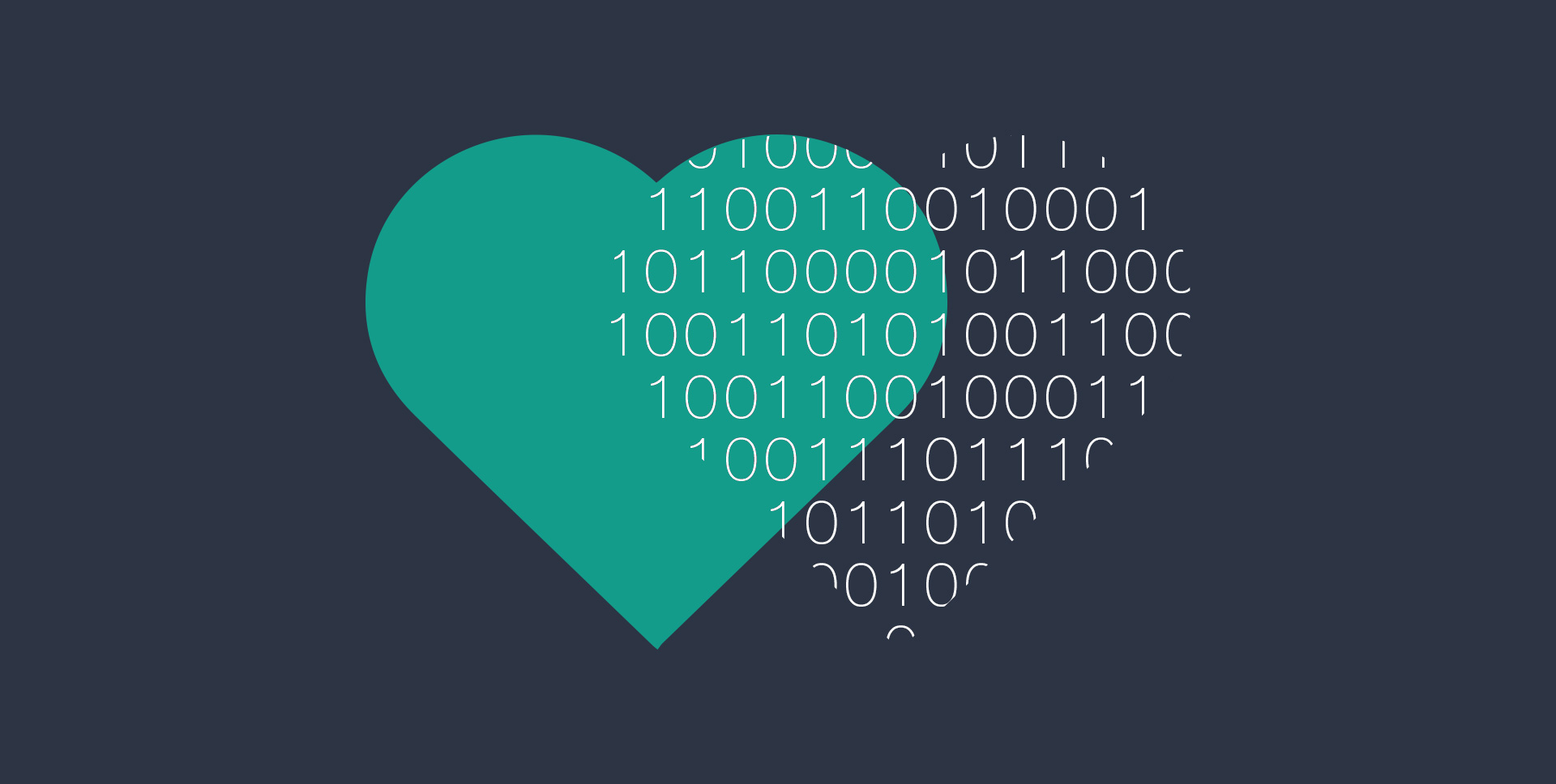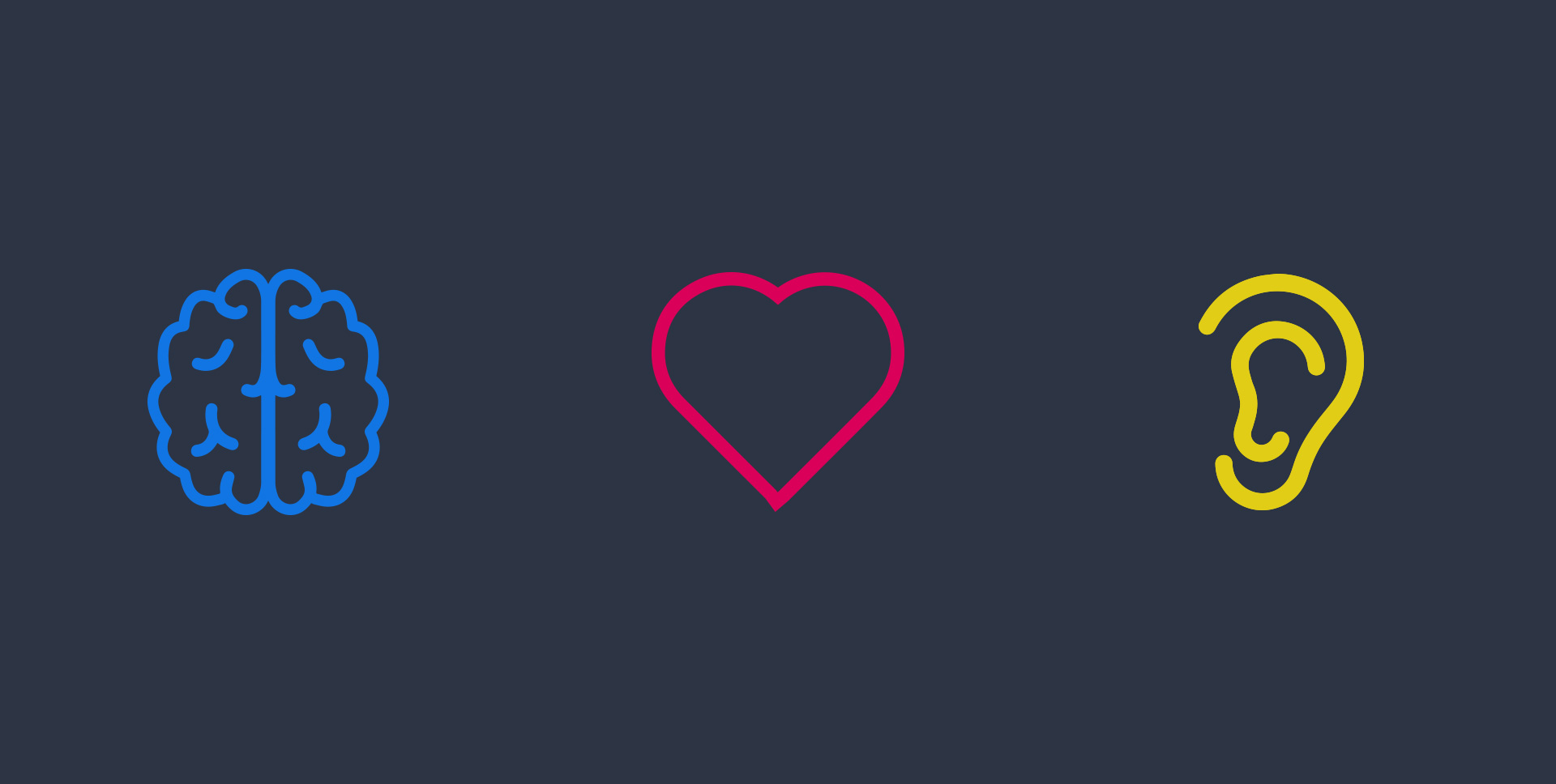
This is a 5 Part Series on Empathy and its relation to artificial intelligence, machine learning, and where we are headed in the future with technology. Follow the Kairos team as we explore empathy in the tech field and ways to implement it.
I recently expressed to someone about a time in my life that left me upset, changed, and almost broken. Their response was "I'm sorry, but every one goes through tough times. It sucks, but it's normal". I have thick skin, it's hard to offend me or upset me, but that statement made me roll my eyes and shake my head.
Here I was trying to connect with someone on a deeper level and they just fluffed me off with a semi-sympathetic response. Where was the empathy?
We All Do It, We're Only Human After All
How many times have you said, "I'm sorry to hear that" when someone expresses bad news? The typical reaction to that statement is usually, "Thanks" or "Don't be sorry" and the conversation is dropped.
Do you think "I'm sorry to hear that" is a sympathetic or empathic statement?
...
It's a sympathetic statement, a statement that says "I understand your pain" but its connotation is "I don't fully support you".
Empathy, on the other hand, expresses so much more.
What is Empathy?
Homer, the ancient Greek philosopher, once said: "Yet, taught by time, my heart has learned to glow for other's good, and melt at other's woe."
This may have been the first written example of empathy as it discusses feeling what someone else is feeling. Empathy is about putting yourself in someone's situation and trying to feel what they are going through so that your emotions can mimic their own.
FROM WEBSTER'S
The action of understanding, being aware of, being sensitive to, and vicariously experiencing the feelings, thoughts, and experience of another of either the past or present without having the feelings, thoughts, and experience fully communicated in an objectively explicit manner; also: the capacity for this.
The word empathy did not come into the English vocabulary until 1909, when a psychologist, Edward Titchener, translated the German word einfühlung (‘feeling into’) into English as ‘empathy’. Since then empathy has even been broken down into three different types by psychologists and Paul Ekman, considered the father of emotion.
The 3 Different Types of Empathy
Type 1 is the most common, Cognitive Empathy. It is a mental way of knowing what another person is thinking. In the business world it is often referred to perspective-talking but when taken to the next level it is also called manipulation. Sociopaths and narcissists understand the power within understanding the mind and can use this type of empathy, by removing all sympathy, to get what they want.
Emotional Empathy, the second type, is when you physically feel what another person is feeling. This is a very difficult type of empathy to conjure as it requires you to mirror someone else's emotions and then find a place in your life where you felt the same. However, being attuned to another person's feelings in this way is often appreciated and builds stronger relationships.

In addition to Dr. Ekman, Psychologist Daniel Goleman has written extensively about the three kinds of empathy.
The danger to emotional empathy is that if you do not manage your own emotions while taking on others, you can psychologically damage your own emotional state. The key, according to the those who meditate, is to only relate to one emotion that someone else is feeling instead of all emotions.
Lastly, we have Compassionate Empathy which is when you feel another's emotion and then act out to help that person. Compassionate empathy is usually found in people working in social sector jobs as it is vital for them to connect to others, understand their emotional state, and plan the next steps to take.
Still Confused? Here's a relatable situation. Someone you love dies, you email your job and here are the different responses.
Sympathetic Response:
"Dear You, We are sorry for your loss, please take some time off and let us know when you will be returning. If you need to talk to someone HR can send you our hotline number. Sincerely, Your Boss"
Empathetic Response:
"Dear You, I know how hard it is to lose someone you love and I am sorry you are going through this right now. It must be very uneasy and you probably have a lot of questions as to why, so I want you to know that at XYZ Company, your teammates and I are here for you. If you need someone to talk to, some additional time off, or just want to keep your mind busy call me. We are here to help you through this tough time, and if you need anything please don't hesitate to ask. Your Boss"
The sympathetic response is polite but cold while the empathetic response exercises all three types of empathy and feels like your boss understands.
Empathy is Vital in Our Society and in Our Technology
Empathy allows us to understand one another on a deeper level, creating more meaningful relationships. If possible, empathy should be exercised in every relationship that you have, even business relationships. In fact, empathy is one of the most important qualities one should have in the business world as it allows you to connect better with your coworkers and team members.
In our 5 part series we will continue to explore empathy in the world of technology, specifically in artificial intelligence. If empathy is vital to our human relationships it will also be vital to our relationships with technology as it continues to advance and serve us. Let us know what you think about this series and your thoughts on empathy by reaching out to us on Twitter.
Part 1: What is Empathy?
Part 2: Empathetic Machines Creating Jobs?
Part 3: Impressive Artificial Intelligence Using Empathy Now
Part 4: Is Facial Recognition and Emotion Analysis the Answer to Empathetic AI?
Part 5: Empathy in AI Series: Part 5, The Future of Empathetic AI

Gabriella Leone
Gabriella is the Head of Content at Kairos, a Human Analytics platform that radically changes how companies understand people.